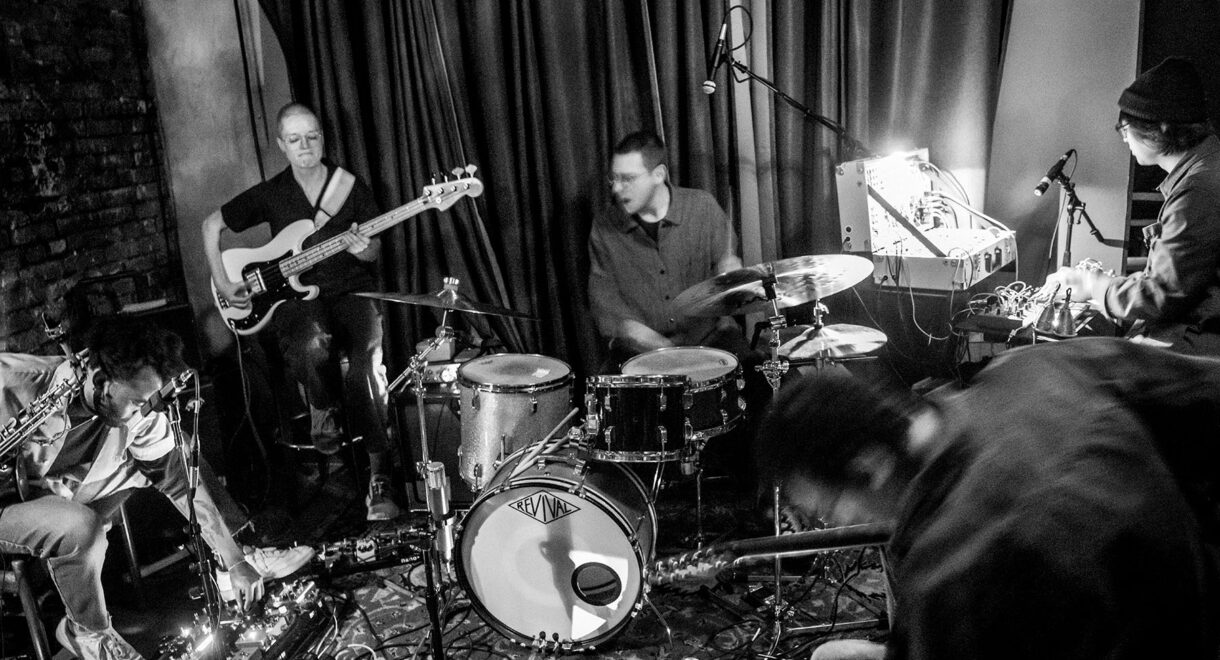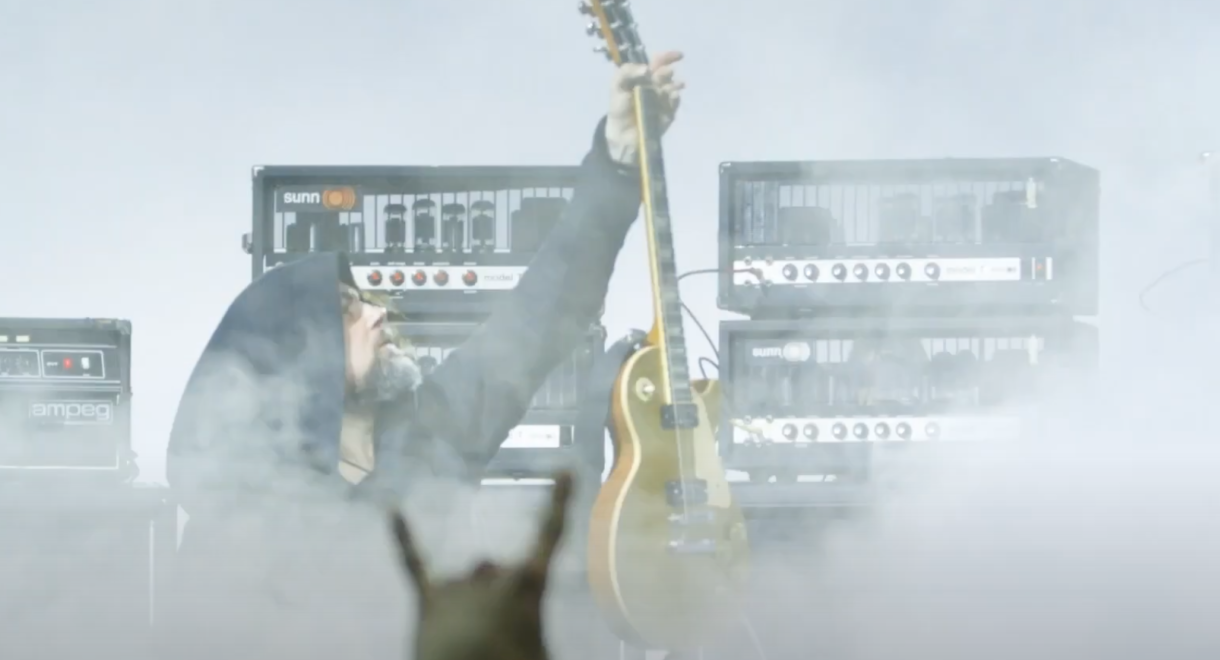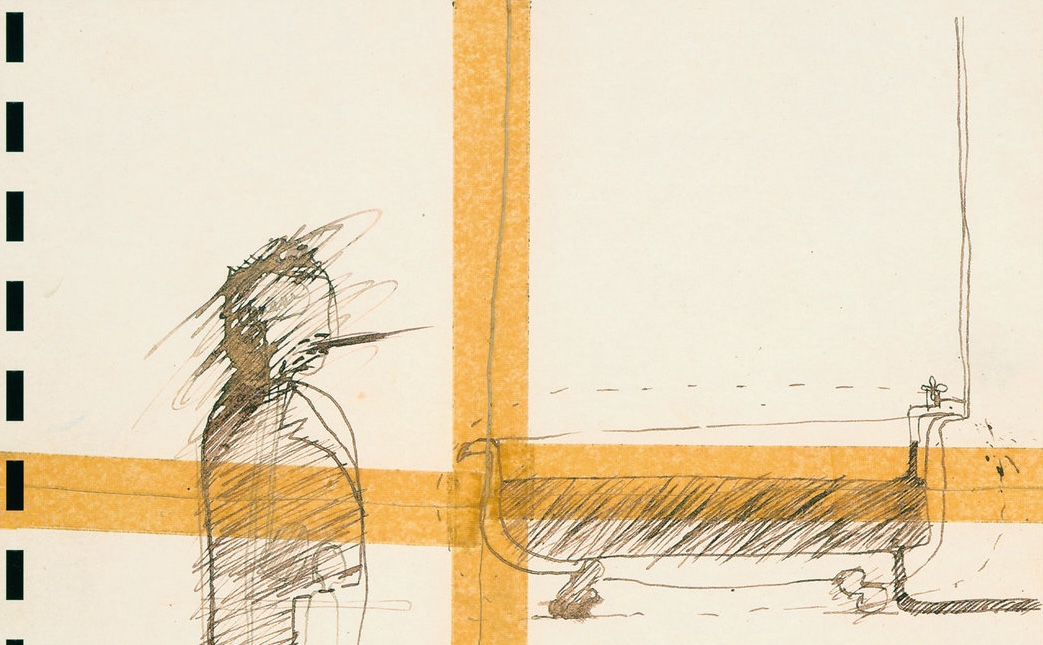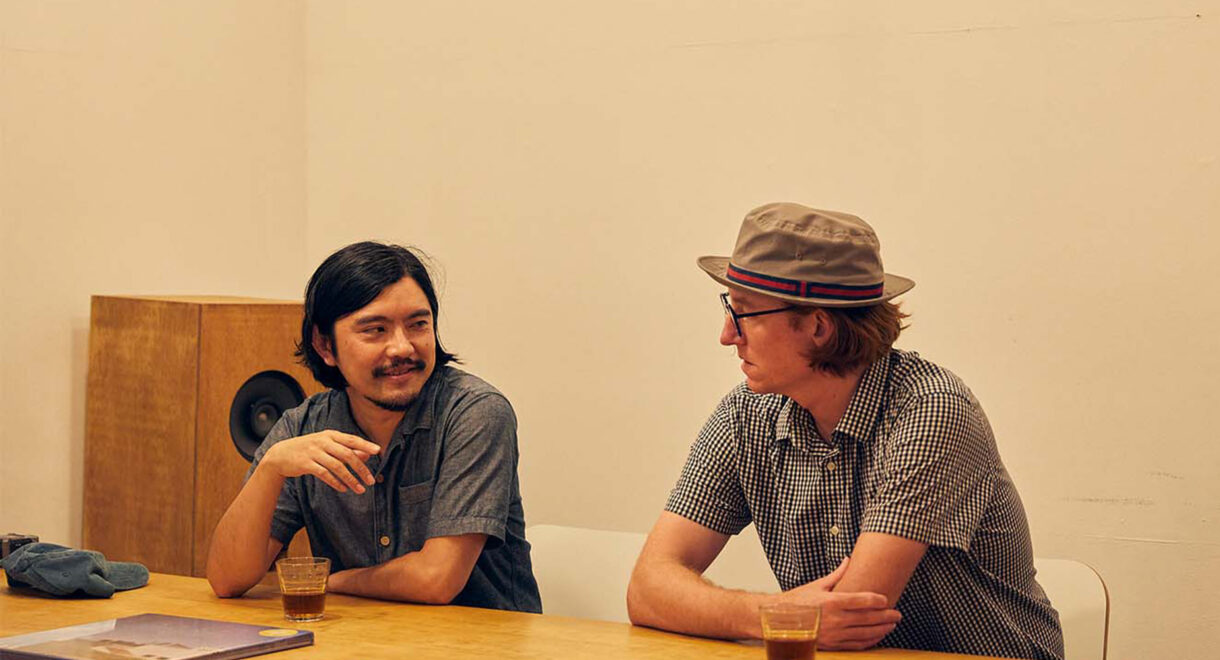Let’s talk about Roberto Musci, the Milanese experimental composer whose work both alone and with kindred spirit Giovanni Venosta starting in the 1980s has been gaining attention and […]
Talvé’s ‘Naked in the Park’: How Yoga Records unearthed an early ’80s experimental pop gem

A lost gem from NPR classical critic Tom Manoff and master vocalist Jill Talvé.
Jill Talvé was in her late teens when, in the early 1980s, she moved to Eugene, Oregon to work on what would become her debut album. Called Naked in the Park, she made it with her songwriting partner, mentor and former teacher, Tom Manoff. Not only was the record never released, it was supposed to be destroyed.
Talvé had committed herself to music from an early age, taking trains from Westchester County into the city while in high school to attend classes with the goal of, she said during a recent conversation, “understanding music to a point where I could actually lead other musicians into that place.”
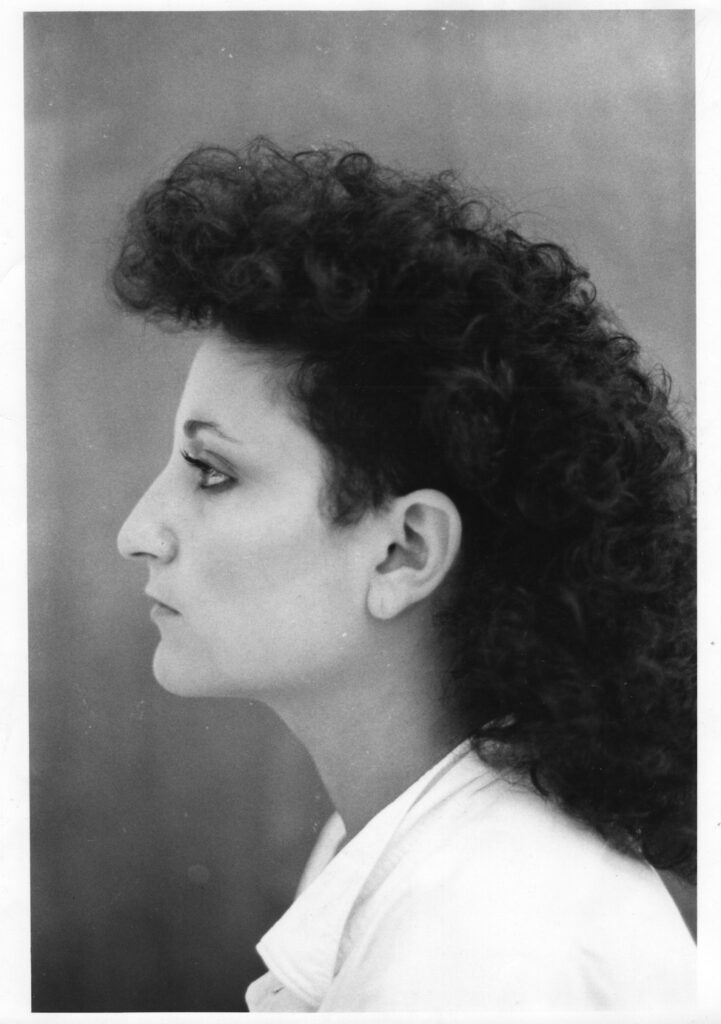
“It’s all I ever wanted to be,” she said. “Music was my language. Whether it was classical or progressive or whatever style it was, it didn’t matter to me. I just needed to be in that vibrational existence.”
Manoff was one of her teachers. He was a successful New York commercial musician, budding composer and author who was teaching and pursuing an academic life and writing music textbooks. If you know his name, it’s because he was NPR’s classical music critic for decades. When Manoff took a job at the University of Oregon, he did so at the expense of continuing work with one of his most promising students. But he’d loaned Talvé professional gear that allowed her to harmonize with herself, and she’d honed that skill.
Available now in-store: https://insheepsclothinghifi.com/product/talve-%e2%80%8e-naked-in-the-park-lp/
Then in his early 30s, he’d never encountered a talent like hers, he says during a recent call. “Literally, you could sing a part to her, a counterpoint, and she’d get it the first time. It would be in tune, she’d hit the notes and she’d phrase it right. Unbelievable.”
Manoff wasn’t a pop music guy per se, but he was deeply consumed with music. “Tom has literally written textbooks on the history of music. He’s a hardcore music intellectual,” says Douglas Mcgowan, whose Yoga Records just released Naked in the Park after he stumbled across a cassette of it through an acquaintance.
At the time Talvé and Manoff started working together, New York was in the midst of a profound cultural shift, as rap, disco, punk and new music were blurring lines and, coupled with new production technology, creating fresh sounds. Eugene, by contrast, was the opposite: a college town on the other side of the country – and a world away from Talve’s early, privileged years in Westchester County. Though she’d committed to studying music at a the University of Michigan, after less than a year she told Manoff that she was unhappy there.
Recalls Talvé, “He didn’t really say, ‘You have to come and work with me in Oregon,’ but he did say, ‘If you’d like to work with me in Oregon, you can.’ Much to my parents’ dismay, I went across the country and waited about a year for him to get freed up in terms of time, then we started working together.” Though her family wasn’t thrilled with her decision, her dad nonetheless financed the construction of a $60,000 recording studio (more than $250k when adjusted for inflation).
“I became an instrument for him,” Talvé says of the process. “My voice was one of the instruments that fed into this project. He used my stylings to help inform his writing, but a lot of it came from his vision. I was able to fill in his vision. And I honed my vocal instrument to his requirements.”
“Like any great musical discovery, the record seems to point a way to an escape hatch to an alternate, better dimension where this got the release it deserved, and Manoff and/or Talvé made a dozen more records.”
DOUGLAS McGowan (YOGA RECORDS)
It took the two of them more than two years to conclude what would become Naked in the Park. Talvé, then in her early 20s, was getting restless to get it done and prove to her family, with whom she remained extremely close, that she was committed to finishing the project.
During the years that Manoff and Talve made Naked in the Park, she says that at times lines were blurred in the course of tracking vocals. “It was strictly professional,” she says when asked about the nature of the relationship. “It was all about the work. That being said, there I was, a virgin, when I moved to Eugene. I was growing up at the same time I was developing myself as an artist. There were definitely some mistakes I made along the way, but there were other times that were just completely, I don’t know, otherworldly.”
Manoff prefers not to revisit the details of their creative partnership, other than to say that he knew the project had reached its conclusion when Talvé arrived at the studio with her boyfriend, and he suggested that the drums could be a little louder in the mix.
Talvé says that there was other interpersonal stuff going on at the time that made the project untenable. “It just became too much for me to handle. So then I quit.”
“We had an acrimonious breakup, with the lawyers and all kinds of stuff,” Manoff explains. “I spent some years trying to find a singer like Jill, and I never did. I’d go into the studio with someone and people say, ‘Oh, she’s good.’ But it wouldn’t be that thrilling sound that Jill has. It’s just incredible. But I had my books, and then I got on NPR.” Manoff had to destroy his copies of Naked in the Park.
Enter Mcgowan. Best known for his brilliant, history correcting collection I Am The Center: Private Issue New Age In America, 1950-1990, Mcgowan oversees West Coast A&R for archival label Numero Group and, with Tyler Craft, co-owns Yoga.
During digs at various record outlets while Mcgowan was living in Eugene in the early ‘10s, he started picking up tapes released by the Eugene Electronic Music Collective, which led to Numero Group releasing Switched On Eugene, a collection that came out in 2018. Member Peter Nothnagle had saved a box of demo tapes and sent them to Mcgowan. Amid work by the EEMC were four identified as being by Talvé.
“I put those on and they were absolutely stunning,” he says. After reaching out to both Manoff and Talve, he learned of the issues that led to Naked in the Park‘s shelving. “It was clear that there was still a lot of unresolved emotional stuff.” In fact, Talve and Manoff had attempted to mend their artistic relationship in 2008 in order to revise the album. In the process, though, they had another falling out. Talvé wasn’t in it for the money; by then she’d become CEO of the steel company her father had cofounded.
After that second failed attempt, neither of the artists figured anything would come of it ever again. Mcgowan couldn’t resist attempting to lure them toward its release. He explains why in the release notes: “Like any great musical discovery, the record seems to point a way to an escape hatch to an alternate, better dimension where this got the release it deserved, and Manoff and/or Talvé made a dozen more records.”
That didn’t happen. Luckily, this document remains.





